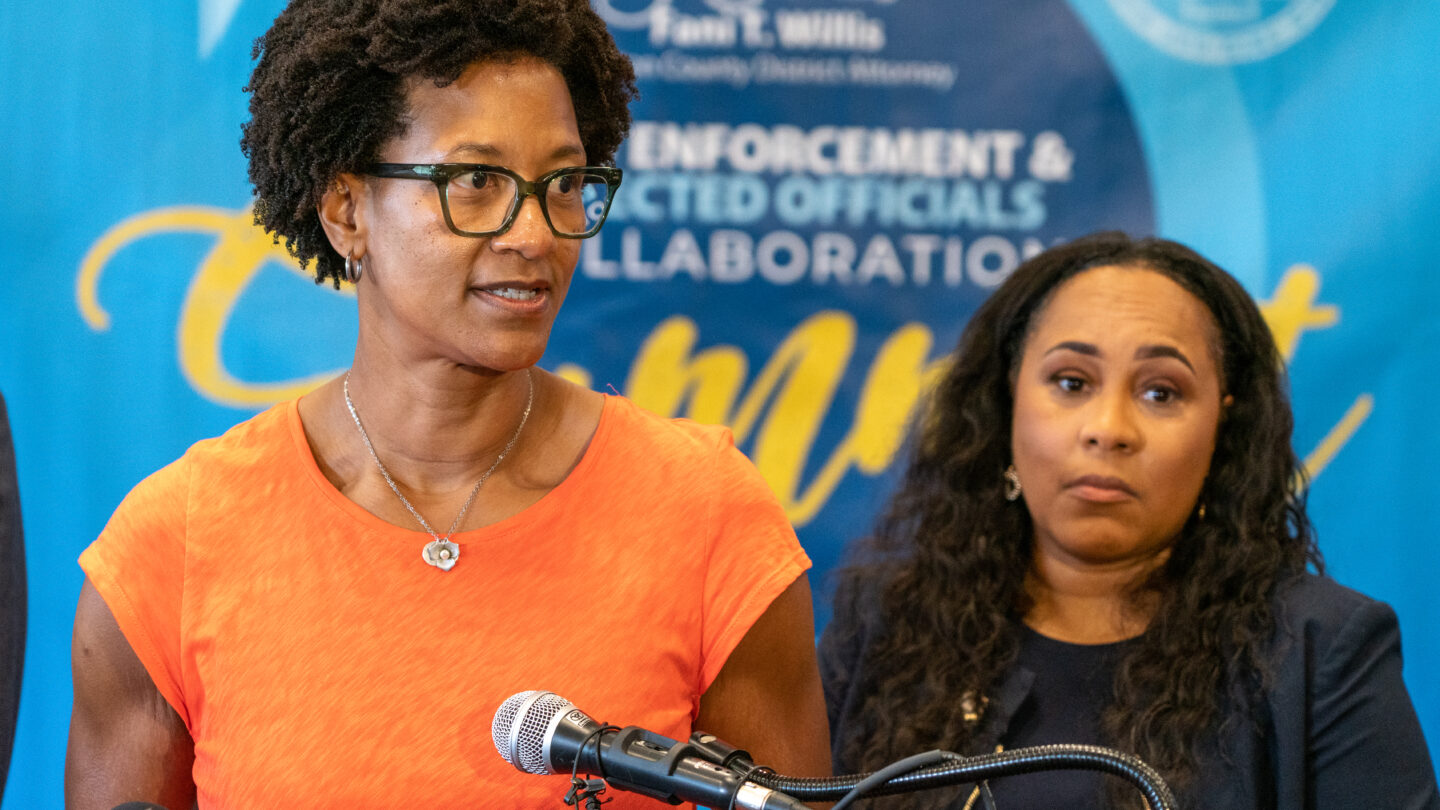The Georgia attorney general’s office is asking for an explanation from College Park’s city attorney after the city council forced the public out of a special meeting on Aug. 9.
In the meeting, the city council adopted a measure to censure the mayor, Bianca Motley Broom.
Some members of the public in attendance at the meeting responded with disapproval of the effort, which led the interim city manager, Emmanuel Adediran, to remove the audience.
City documents state this censure was based on the mayor’s “disruptive behavior” during the Aug. 5 meeting.
In a letter from the attorney general’s office, College Park’s city attorney, Winston Denmark, was given ten days to explain the actions taken during the meeting.
The attorney general’s inquiry comes amid a series of moves by the city’s government that have raised concerns for some residents and the mayor.
Debates over the sale of Bill Evans Field, at least 6.5 acres of greenspace used by Morehouse and Clark Atlanta students, came up in various meetings, and the mayor has even addressed the issue.
City documents state in February, the council voted to transfer the deed to the city’s Business & Industrial Development Authority, or BIDA.
According to the mayor, the BIDA chairman was authorized to make the sale, but instead, the city manager signed a contract to sell the field for $1.5 million — and did it without an appraisal.
In the spring, the possible removal of a rock climbing wall at the Tracey Wyatt Rec Center surfaced. Supporters of the wall pushed back, and it was ultimately saved.
Meanwhile, a proposal for a lithium battery storage facility came up.
In a March meeting, the council accepted a $1.6 million grant from Southwest Atlanta Battery Storage, LLC, for the project. The council also voted to rezone an area of the city that could be the site for the storage facility.
Some citizens questioned whether the facility would be safe for the surrounding neighborhoods, citing potential fires and chemical exposure.
College Park Councilman Roderick Gay responded to residents’ concerns about the facility in an online opinion column, stating that public discussions have “shed light on the project’s merits.”
Some legal issues around College Park’s Six West mixed-use development arose a few months later. In June, one of the city’s developers for the project, Property Markets Group, or PMG, sued the city’s BIDA for breach of contract.
According to legal documents, PMG’s main reason for filing the lawsuit was that BIDA unexpectedly dropped the real estate firm in June.
Tensions around these issues are apparent in the city council, as are tensions between the council and the mayor.
Members of the council have adopted administrative guidelines and policies limiting Motley Broom’s participation, including prohibiting the mayor from commenting or expressing opinions during council deliberations.
Motley Broom filed a lawsuit in response to the council’s actions, which is still open.
These instances of censuring the mayor have also added fuel to the community’s fire.
A large Facebook group of College Park residents is increasingly engaged in following city government, and a more focused group called United College Park is keeping up with the discourse on the city’s prominent issues.
“It certainly is like a full-time job pulling these records, trying to figure out the information, watching meetings and learning what was said,” said Annemarie O’Bea, a city resident who is involved with United College Park. “It really shows you that, unless you’re really watching and listening, the things that can go on in your local government that affect you — they’re really concerning, and they’re really things that you need to know about.”
United College Park is also spearheading an effort to recall Councilwoman Jamelle McKenzie because of dissatisfaction with her performance as a council member.
The process is on hold due to a lawsuit filed by McKenzie earlier this month.
Councilwoman McKenzie told WABE she believes the allegations don’t meet the legal qualifications to recall her.
“I know that they got people to sign the recall, but there are concerns about the signatures that were placed. We’ve already had people that say that they were lied to. They were deceived. They thought they were signing a petition to actually keep me in office and not remove me,” McKenzie said.
According to McKenzie’s lawsuit, she is petitioning “for review of the sufficiency of [the] recall application.”
The city is conducting business as normal as of now. Mayor Motley Broom issued a statement denouncing the council’s censure, and addressed the actions from the meeting earlier this month.
“Friends, you have a fundamental right to voice your opinions and concerns to your elected officials in a public forum,” Motley Broom wrote. “The decision to remove the public from the August 9 Special Called Meeting violated these principles and, quite possibly, state law.”










